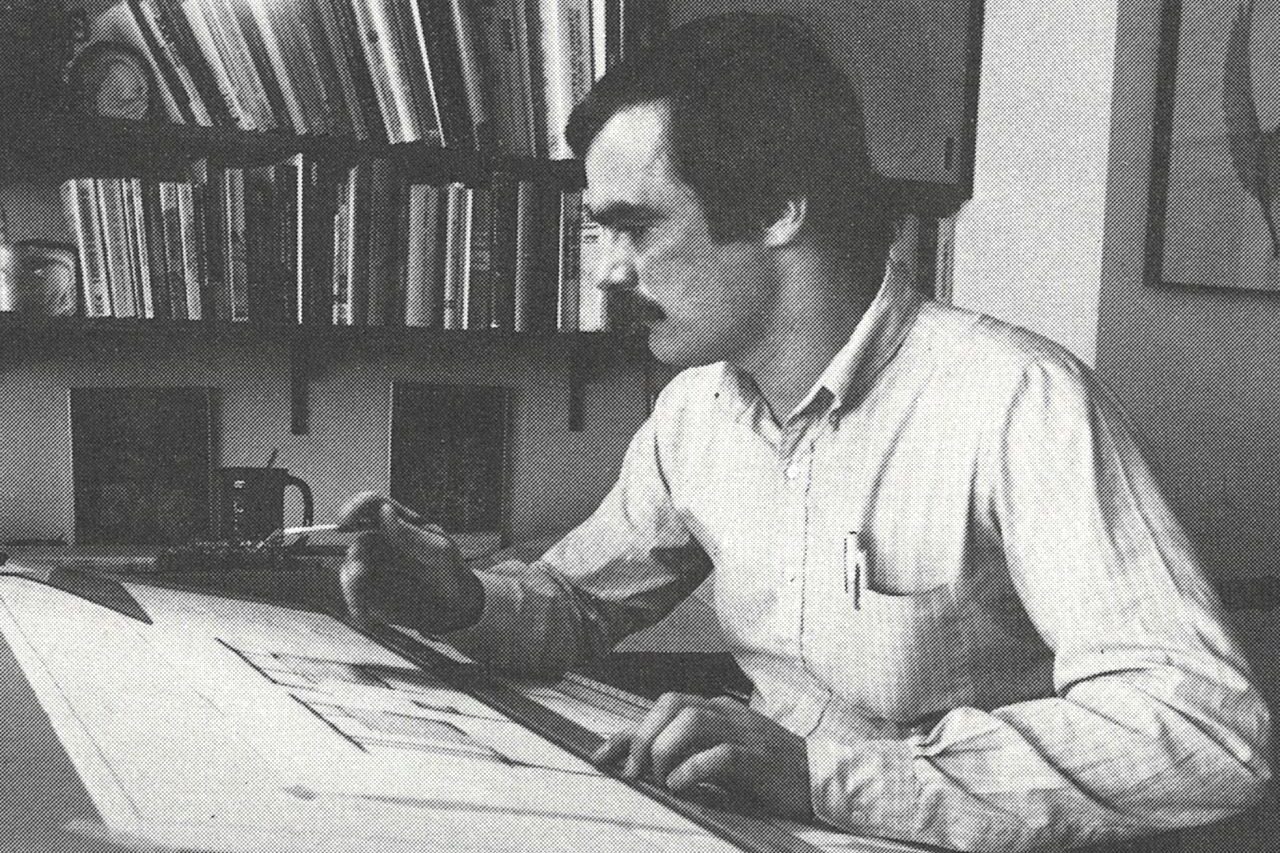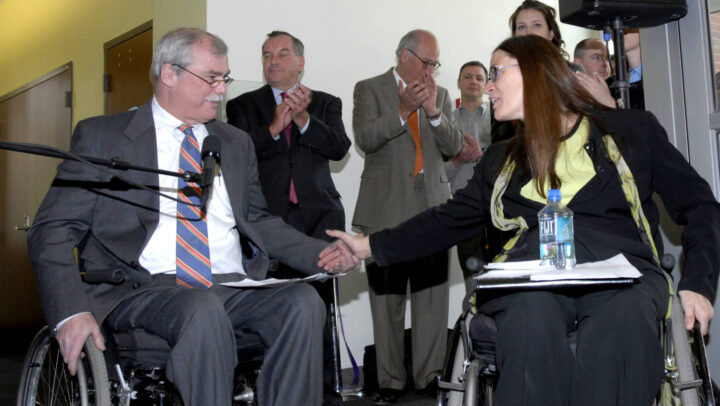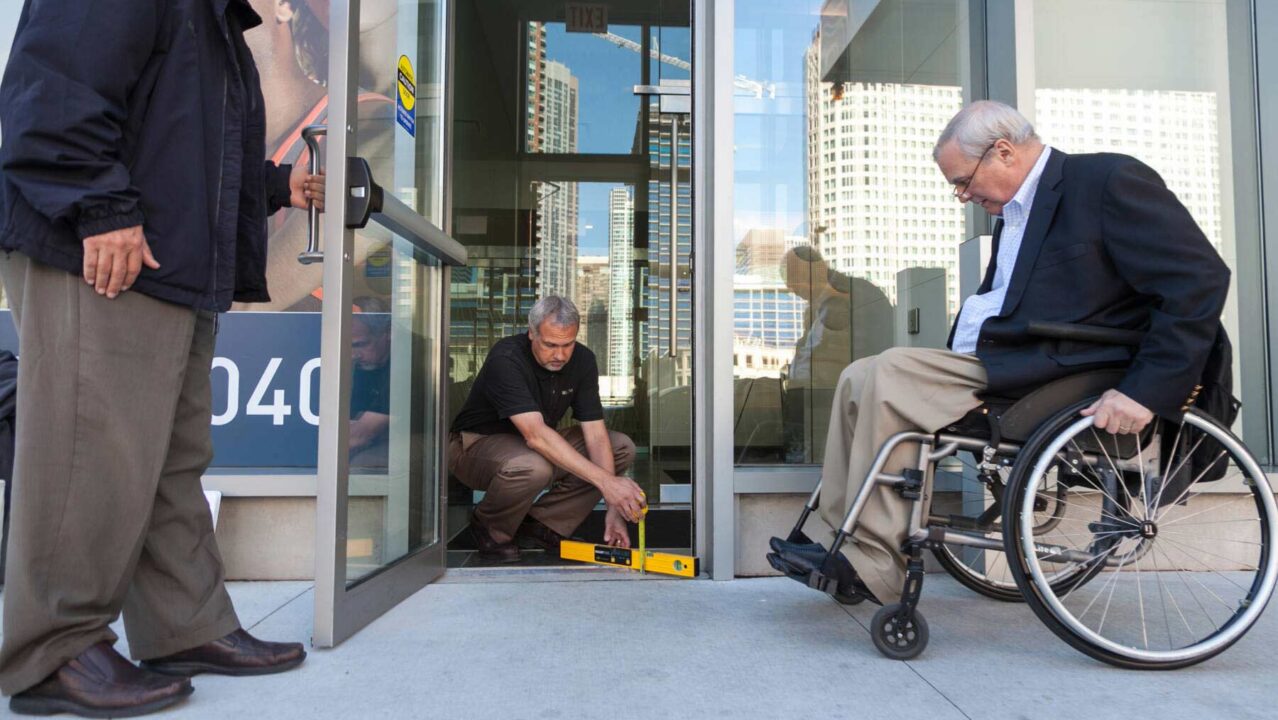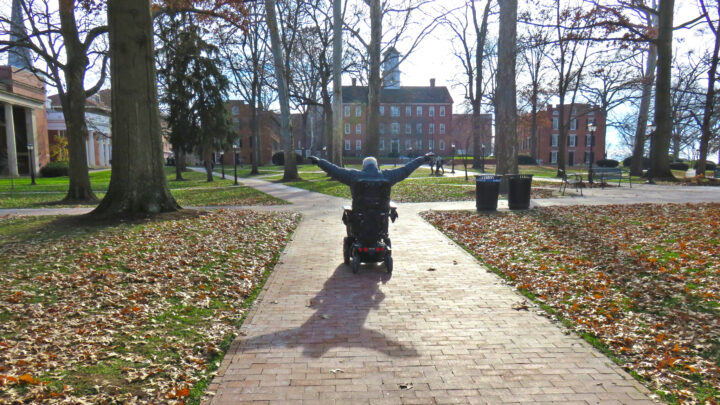Remembering Jack Catlin, LCM Founding Partner

LCM Architects is deeply saddened by the loss of our esteemed colleague and dear friend Jack Catlin. John H. Catlin, FAIA, the ‘C’ in the Lehner-Catlin-Mohnke trio that founded LCM in 1996, died on Sunday, September 17, of complications from a recent illness. He was 75.
Jack was among the nation’s pioneering luminaries who have worked tirelessly for decades to advance equal rights for people with disabilities in all aspects of life. His multi-faceted contributions are significant and touched accessibility regulations, inclusive design, building industry guidance, and public awareness of accessibility’s life-changing potential.
While Jack is recognized nationwide as a leader in accessibility and inclusive design, he was affectionately known for his humility, humanity, and humor. Those qualities will be sorely missed, even as his professional legacy carries on through LCM’s work and the individuals he has mentored.
As a wheelchair user for nearly 50 years, Jack knew firsthand that the ability to move about independently engenders the essential sense of well-being and human dignity all people deserve. To that end he earned Master of Architecture (1983) after becoming a wheelchair user to focus on the built environment and the means to remove the barriers he knew so well. In his unique position, for 40+ years Jack advocated for both the architectural and disability communities to build environments that adapt to people, not the other way around. For his achievements in building bridges between these two groups, Jack was elevated to AIA Fellowship (2004) and honored with AIA Chicago’s Distinguished Service Award (2022).


Jack was Director of Access Chicago at the Rehabilitation Institute of Chicago (now the Shirley Ryan AbilitLab), where he received treatment after his spinal injury and later served on the Board of Directors for 12 years. Then, after practicing architecture at Loebl Sclossman & Hackl in Chicago (1984-1996) he co-founded LCM Architects, which soon became a go-to resource for trusted guidance on all design and construction accessibility matters.
The firm’s projects that demonstrate the confluence of architectural and inclusive design were a particular source of pride for him. Of note are: the Chicago corporate headquarters for Access Living, a nationally prominent disability advocacy and social services organization where Jack at one time was a Board member; and the Chez Veterans Center, a first-of-its-kind residential and academic center for veterans on the University of Illinois Urbana-Champaign campus. Jack’s U.S. military service in Vietnam contributed to his understanding of the needs of veterans returning to civilian life.
Nationally recognized for his unique knowledge and personal experience, Jack was appointed by President Clinton to the U.S. Access Board (1994-2002), the federal agency responsible for developing accessibility guidelines. He had the distinction of being the first practicing architect to chair the Board. Mayors and attorneys general appointed Jack to committees where his input as an architect and person with a disability was invaluable in writing or revising the Illinois Accessibility Code, the Illinois Health/Life Safety Code for public schools, and the Chicago Building Code.
Engaging and articulate, Jack connected positively with all types of listeners in local, national, and even international audiences in person or through the media. In another ‘first’, Jack co-authored Progressive Architecture’s introductory article on Barrier Free Design (1978), the magazine’s first issue ever devoted to a single subject. He reached thousands of designers, owners, builders, attorneys, and ADA coordinators through trainings, panels, or presentations for organizations such as the AIA, National Association of ADA Coordinators, Fair Housing Accessibility FIRST, U.N. World Rehabilitation Fund, Smithsonian Institution, Construction Specifications Institute, and the National Association of College and University Attorneys.


Architects, major developers, corporations, and municipalities, including nearly every City of Chicago agency, have trusted Jack’s guidance on accessibility issues. At LCM he reviewed hundreds of plans for new construction and alterations and traveled throughout the country to verify accessibility compliance at sites ranging from college campuses to public parks and multifamily residential developments.
Born in Illinois, Jack loved to visit new places and traveled all over the U.S .and globally for work or pleasure. A Chicago resident for most of his life, he was active in civic and community service, particularly contributing his professional and personal perspective on accessibility. Leadership roles include: Chicago Community Trust Executive Committee Co-Chair and Program Committee; Chicago Transit Authority Board of Directors, Strategic Planning Committee, ADA Advisory Committee Chair, Community Advisory Board; ADA 25 Chicago Steering Committee; Chair, Accessible Transportation Committee, Chicago area Transportation Study; Metropolitan Planning Council Board of Governors.
Jack’s immediate family was at the heart of his life. He is survived by his wife, daughter, son-in-law, and granddaughter.
In his 75 years Jack witnessed radical cultural and societal changes and, to his great satisfaction, was even a participant in some of them. Through his intellect and unwavering dedication, Jack propelled the building industry to transform the way places are designed and built, opening opportunities for people with diverse abilities to participate independently, equally, and with dignity in all aspects of daily life. Thank you, Jack.
